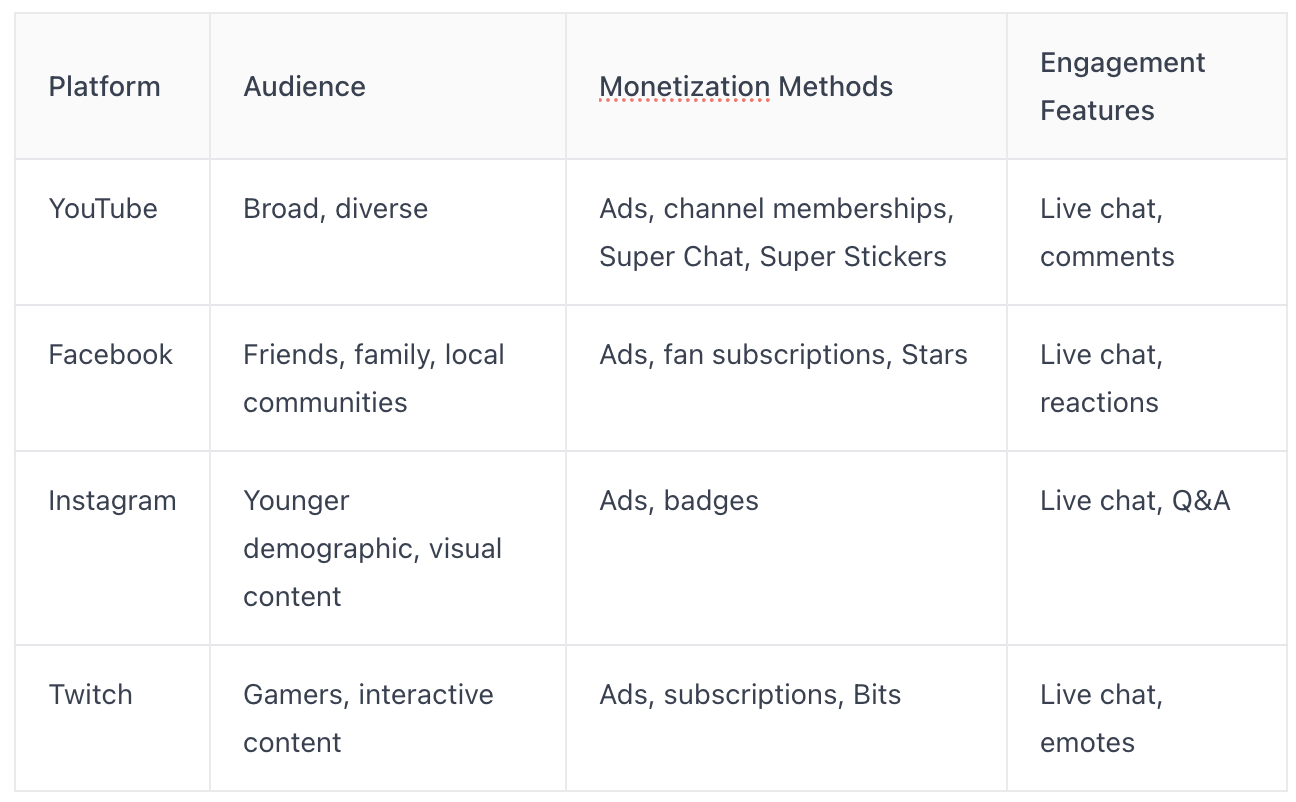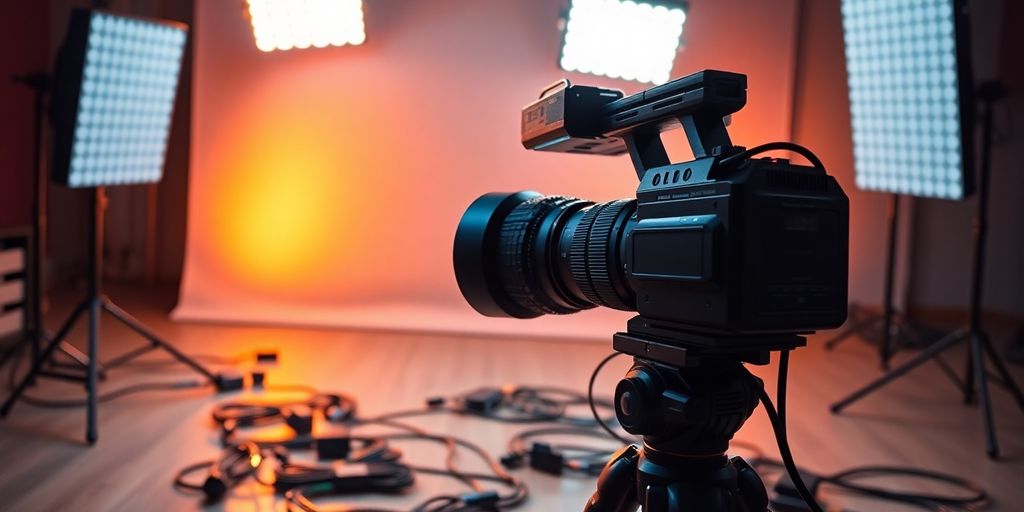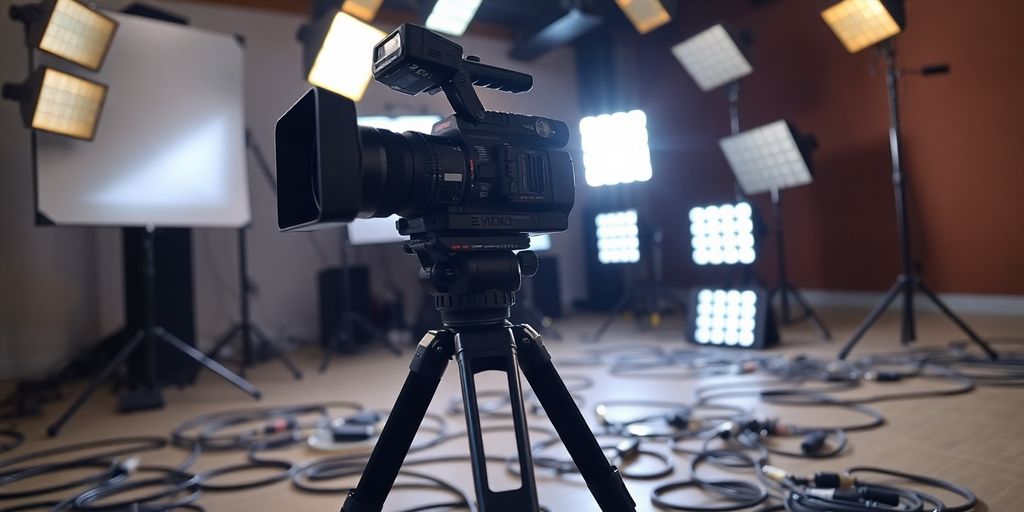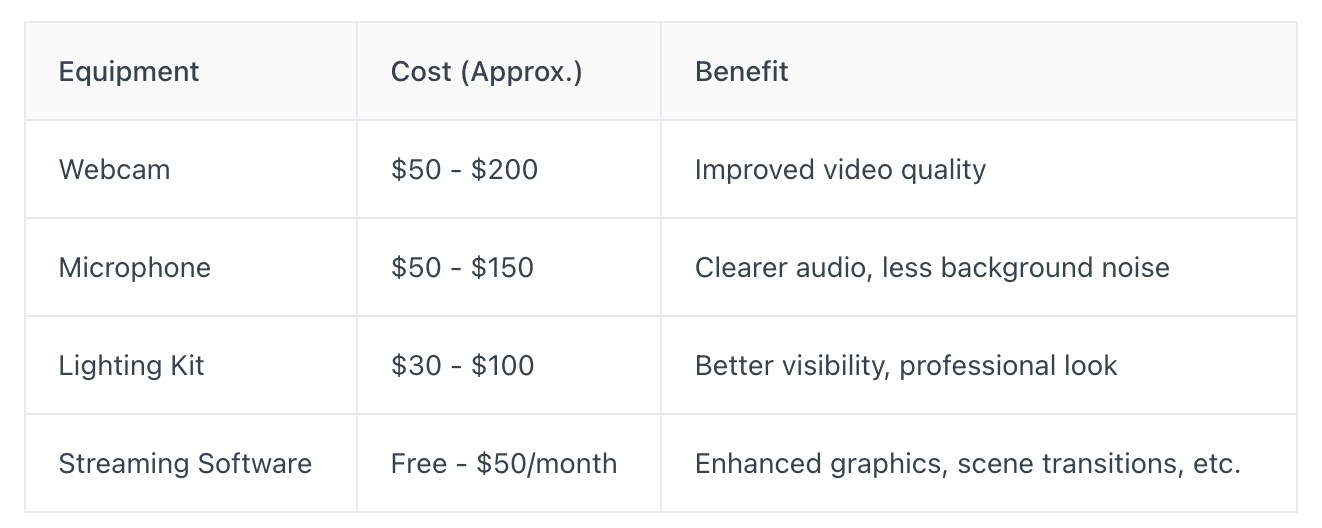Register as an organizer
Click the button below and finish your organizer registration, or fill out the form and we will be in touch to assist you.
.jpeg)
So, you're a local performer, maybe a musician, a comedian, or even a local theater group, and you're thinking about taking your show online. It makes sense, right? Live streaming has become a big deal, especially for folks who want to reach more people without having to book a physical venue. But how do you actually make money from it? It’s not just about hitting the 'go live' button; there's a whole world of possibilities for Livestream monetization for local acts. Let's break down some ways you can turn your online performances into a real income source.
Social media is where everyone is these days, so it makes sense to start here. Social streaming platforms offer a readily available infrastructure for local acts to broadcast their performances and connect with audiences. It's not always the most lucrative option, but it's often the easiest to get started with.
Social platforms like YouTube, Facebook, Instagram, and Twitch boast massive user bases. This means your potential audience is huge. You can tap into existing networks and communities, expanding your reach beyond your local scene. The key is to understand each platform's unique audience and tailor your content accordingly. For example, Twitch is great for gaming and interactive performances, while Facebook is better for reaching a broader demographic.
Most social platforms offer monetization options through advertisements. Once you meet certain criteria (subscriber count, watch hours, etc.), you can become a partner and start earning revenue from ads displayed during your livestreams. The payout rates vary, and it's not always a huge money-maker, but it's a start. It's important to note that ad revenue is often shared with the platform, so you won't keep 100% of the earnings.
Social platforms facilitate direct interaction with your fans through live chat, comments, and reactions. This creates a sense of community and allows you to build stronger relationships with your audience. Many platforms also offer tipping features, allowing fans to directly support you during your livestreams. This can be a great way to supplement your income and show appreciation for your loyal supporters.
Social streaming is a great way to get started, but it's important to remember that you don't own the platform or the audience. It's crucial to build your own website and email list to maintain control over your fanbase and revenue streams.
Here's a quick comparison of some popular platforms:


Social media is cool and all, but sometimes you need more control. That's where dedicated livestreaming platforms come in. Think of them as your own personal TV channel, but on the internet. You get to call the shots, set the rules, and, most importantly, keep a bigger slice of the revenue.
The most straightforward way to make money on these platforms is through pay-per-view (PPV). It's like selling tickets to a real-world show, but instead of a physical venue, people are paying for access to your online broadcast. You set the price, promote the event, and viewers pay to watch. It's a direct transaction, cutting out the middleman and putting you in charge of your earnings. How much you charge is up to you, but consider your audience and the value you're offering.
One of the biggest advantages of using a dedicated platform is the control you have over your content. Unlike social media, where algorithms can bury your stream or copyright strikes can take it down, you're in charge. This is especially important for musicians who want to avoid music licensing headaches. You can set your own terms, negotiate royalties directly, and ensure that your content stays online.
These platforms usually come with some pretty robust analytics tools. You can track viewership, engagement, and revenue in real-time. This data is super useful for understanding what works and what doesn't. You can see where your viewers are coming from, how long they're watching, and which parts of your stream are most popular. Plus, the financial reporting features make it easy to track your earnings and manage your payouts.
Using a dedicated platform means you're building a direct relationship with your audience. You're not relying on algorithms or social media trends to reach your fans. You're creating a space where they can connect with you and support your work directly. This can lead to more loyal fans and a more sustainable income stream.

It's not enough to rely solely on one income source. Smart livestreamers explore multiple avenues to boost their earnings and create a more stable business. Think of it as building a financial safety net – if one stream slows down, others can keep you going. Let's look at some ways to make more money from your local livestreams.
Selling merchandise during your livestreams is a great way to engage your audience and generate extra income. It gives fans a tangible way to support you and show off their love for your music or performance. Here are a few ideas:
Make sure to promote your merch throughout the stream and make it easy for viewers to purchase. Consider offering exclusive deals or bundles only available during the livestream to incentivize sales.
Partnering with sponsors and brands can be a lucrative way to increase your livestream revenue. Look for businesses that align with your brand and audience. This could be anything from local restaurants to music equipment companies. Here's how to approach it:
Remember, authenticity is key. Only partner with brands that you genuinely believe in and that your audience will appreciate. Don't sacrifice your credibility for a quick buck.
Affiliate marketing is another way to generate revenue by promoting other companies' products or services. You earn a commission for every sale made through your unique affiliate link. Here's how it works:
For example, if you're a musician, you could become an affiliate for a music equipment retailer and promote their products during your livestreams. Or, if you're a chef, you could promote kitchen gadgets. Just make sure to choose products that you genuinely recommend and that your audience will find useful. This is similar to virtual gifting in some ways.
Local acts have a unique opportunity to connect with their audience through livestreams, but turning those streams into a reliable income source requires a strategic approach. It's not just about hitting the 'go live' button; it's about understanding the financial side and crafting a viewing experience that keeps fans coming back.
Different platforms have different ways of paying out. It's important to know the specifics of each platform you use. Some use a pro-rata system, where your earnings depend on your share of the total streams on the platform. Others might have a fixed rate per stream or a revenue-sharing model for ads. Read the fine print and understand the minimum payout thresholds to avoid surprises. For example, fan memberships can provide a steady income stream.
Engagement is key to monetization. A passive audience won't translate into revenue. Here are some ideas:
Think of your livestream as a virtual concert, not just a performance. Engage with your audience, create a sense of community, and make them feel like they're getting something special that they can't get anywhere else.
Consistency is crucial for building a loyal audience. Don't just livestream sporadically; create a schedule and stick to it. This gives your fans something to look forward to and helps you build momentum. Consider these points:
Livestreaming opens up exciting avenues, but it's super important to understand the legal side of things, especially when it comes to copyright and licensing. Ignoring these aspects can lead to serious problems, like content takedowns or even legal action. Let's break down the key areas you need to be aware of.
Music is a huge part of many livestreams, but you can't just play any song you want. You need the proper licenses to use copyrighted music legally. This usually means obtaining permission from the copyright holders, which can be the songwriters, publishers, or record labels. There are several types of licenses to consider:
It's always better to err on the side of caution. If you're unsure whether you need a license, it's best to contact the copyright holder or a licensing agency to clarify. Using royalty-free music is also an option.
Platforms like YouTube, Twitch, and Facebook have strict policies regarding copyright infringement. If you violate these policies, your livestream could be muted, taken down, or even have your account suspended. To avoid this:
As a content creator, you also have intellectual property to protect. This includes your original music, artwork, and stream content. Here are some steps you can take:
Okay, so you've dipped your toes into the livestreaming world. You've probably figured out that just doing livestreams isn't enough to pay the bills. It's time to think long-term and build something that lasts. It's about more than just going live; it's about creating a business.
Social media is great for initial reach, but you don't own those connections. The goal is to move your followers from rented land (social platforms) to your own property (an email list, a dedicated website, etc.). Think of social media as a funnel. Offer something of value – exclusive content, early access, discounts – in exchange for their email addresses. This gives you direct access to your audience, free from algorithm changes and platform restrictions. It's about building a loyal community that supports you directly. You can monetize your passion by building a direct audience.
Let's be real: people are used to high-quality content. You don't need a Hollywood budget, but a decent camera, good lighting, and clear audio are non-negotiable.
Here's a simple breakdown:

It's an investment in your brand. If your stream looks and sounds amateurish, people won't stick around, no matter how talented you are. Think of it as leveling up your presentation.
Data is your friend. Most platforms provide analytics that show you who's watching, when they're watching, and how long they're watching. Pay attention to this information! What content resonates most with your audience? When are your peak viewing times? Use this data to refine your content strategy, optimize your schedule, and tailor your streams to your audience's preferences. It's a continuous cycle of learning and improvement. Don't just stream; stream smart.
Treat your livestreaming like a real business. Track your expenses, monitor your revenue, and analyze your performance. This isn't just a hobby; it's a potential source of income, and it should be managed accordingly.
So, we've talked a lot about how to make money from livestreams, right? It's pretty clear that just putting on a show isn't enough anymore. You've got to think about tickets, maybe some merch, and even how to get people to chip in a few extra bucks. The good news is, there are lots of ways to do this, whether you're using a big social platform or your own dedicated site. It might seem like a lot to figure out, but getting smart about your online shows can really help you keep doing what you love. It's all about finding what works best for you and your audience, and then just going for it.
You can make money from live performances in a few ways. You can charge the place where you perform, like a restaurant paying you a set amount. You can also sell tickets directly to your fans or sell cool stuff like t-shirts at your show.
To get your music on streaming platforms, first, sign up with a company that helps distribute music. Then, send them your songs. Make sure to add important details to your songs so people can easily find them when they search.
Yes, there's definitely a demand for online live shows! Lots of people are looking for entertainment they can watch from home. This means there's a good chance for artists to earn money through live streams.
You can make money from your live streams in several ways. You can get money from ads shown during your stream, receive donations or 'tips' from viewers, have companies sponsor your content, sell your merchandise, or earn from affiliate sales where you promote other products.
Using social media platforms for live streaming is great because they help you reach a lot of people without spending much. Most of your fans are already on these sites, so it's easy to connect with them.
While social media platforms are good for reaching many people, a downside is that you don't fully control your audience. The platform itself owns those connections. This means they can use your audience for their own business goals. As an artist, you want to build your own audience that you can directly connect with and earn from.
More blogs
Click the button below and finish your organizer registration, or fill out the form and we will be in touch to assist you.